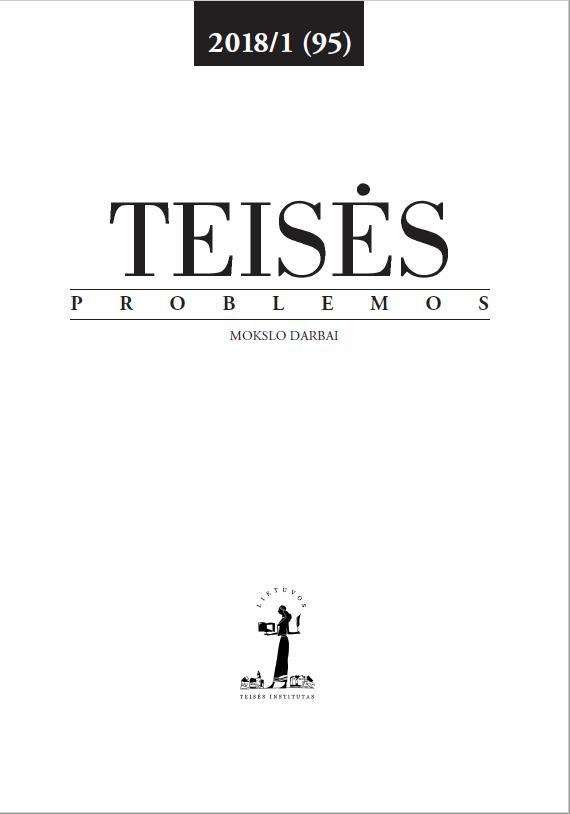Kai kurios privačiame asmens sveikatos priežiūros paslaugų teikimo sektoriuje Lietuvoje paplitusios korupcijos apraiškos
Some Prevalent Corrupt Practices in Lithuanian Private Healthcare Service Delivery Sector
Author(s): Lina BeliūnienėSubject(s): Criminal Law, Health and medicine and law
Published by: Lietuvos teisės institutas
Summary/Abstract: Despite the facts that Lithuania focused on combating corrupt practices in the private health-care service delivery sector, it also promotes the formation of anti-corruption environment in this area, as well as anti-corruption awareness of the Lithuanian population is increasing, however, corruption in the private sector of healthcare service delivery still remains one of the most pressing problems, negatively affecting health outcomes and the whole health system. This article aims to analyse some prevalent corrupt practices in Lithuanian private healthcare service delivery sector, such as: 1) forgery of medical certificates and other medical documents performed by doctors at the request of persons in order to affirm their appropriate status of health (when their status of health is not appropriate) due to their need to obtain a permit to hold (carry) a firearm, to be able to work or to perform certain duties; 2) improper quality of medical services (compared to the requirements for medical services established by the law). The research shows that the first aforementioned manifestations of corrupt practices are related to bribes, i.e. informal payments perfomed by patients. These manifestations tend to be of systemic character. Their wide prevalence is discovered according to the pre-trial investigation data and judgements of courts. The manifestations of the second aforementioned corrupt practices are identified on the basis of interviews with different experts mainly. Data obtained from these interviews reveal some intangible mechanisms of corruption related to such dimensions of quality of medical services as structural and process, i. e. the illegal use of state resources, as well as the transfer of patients from public to private healthcare service delivery sector, the demand for bribes and the acceptance of bribes by doctors’ performing their duties. It is impossible to identify the prevalence of these corrupt practices due to insufficient data about implementation of various criteria established for quality of medical services, especially in the field of their results dimension. The reserch concludes that improper quality of medical services as corrupt practices, including their new manifestations, requires further investigation and systematization. This may help to effectively fight against these corrupt practices.
Journal: Teisės problemos
- Issue Year: 2018
- Issue No: 95 (1)
- Page Range: 85-113
- Page Count: 29
- Language: Lithuanian

